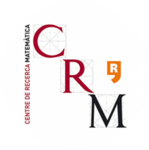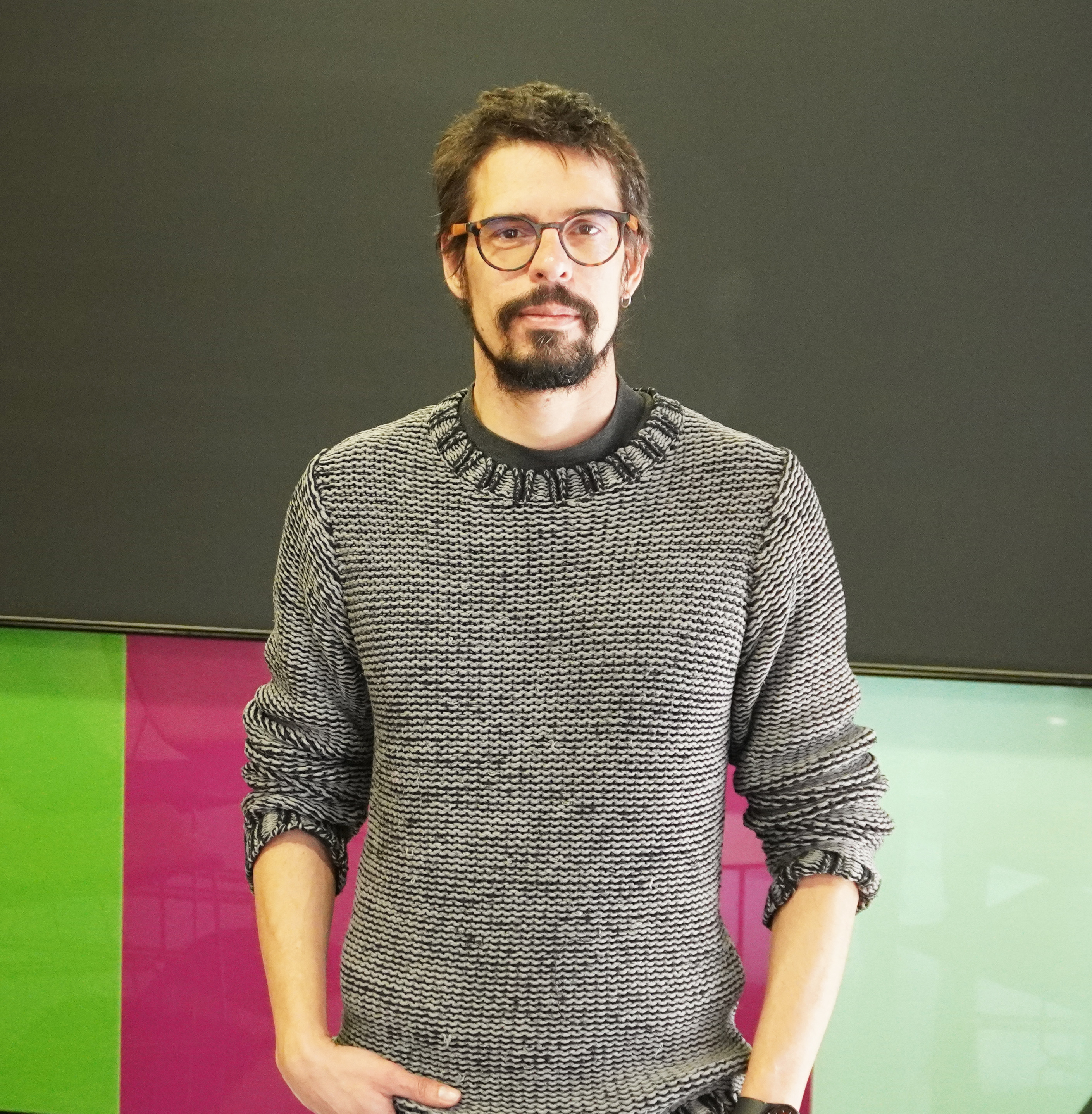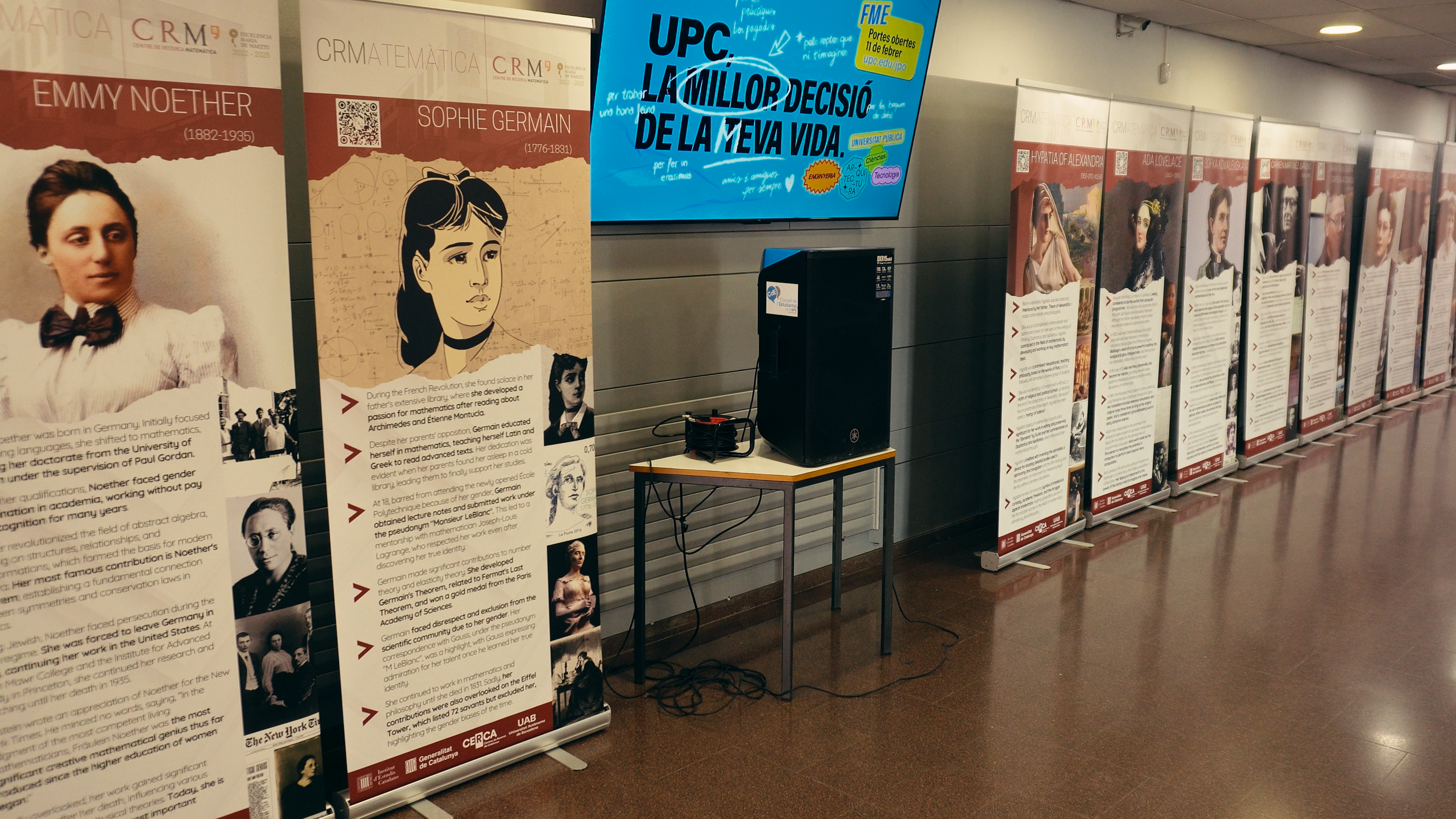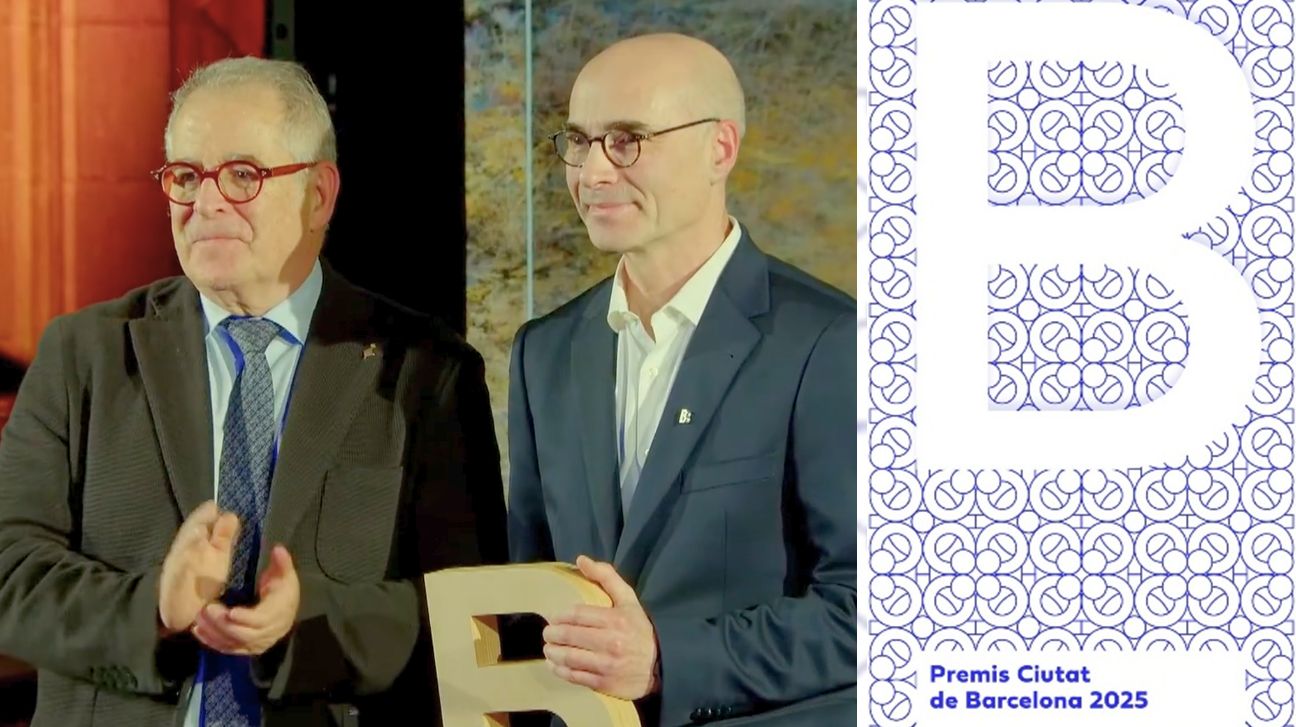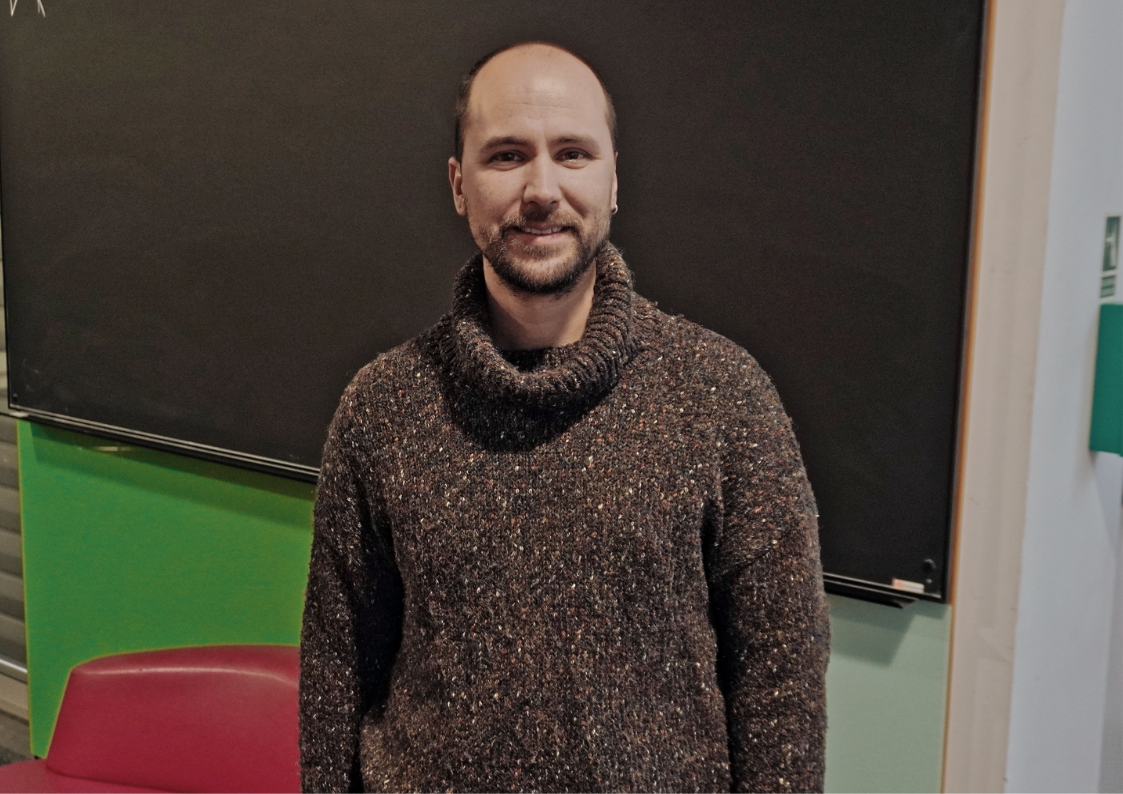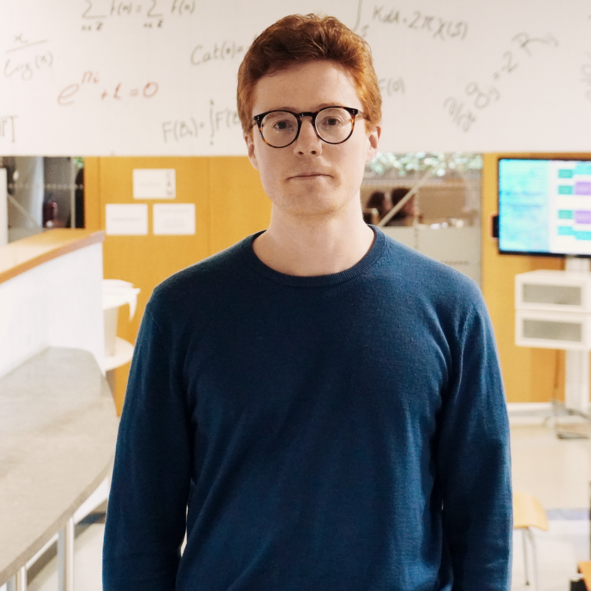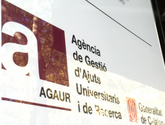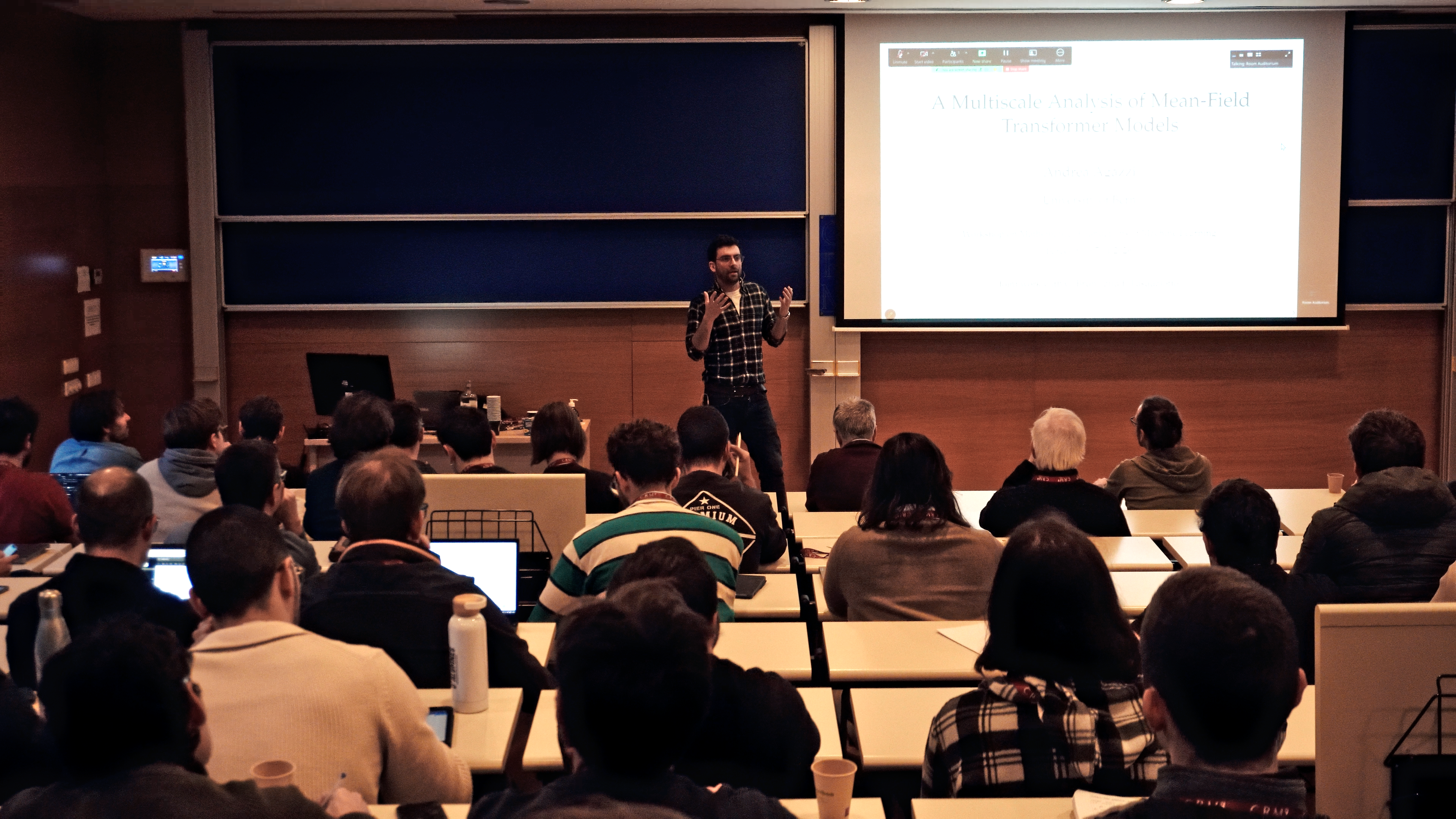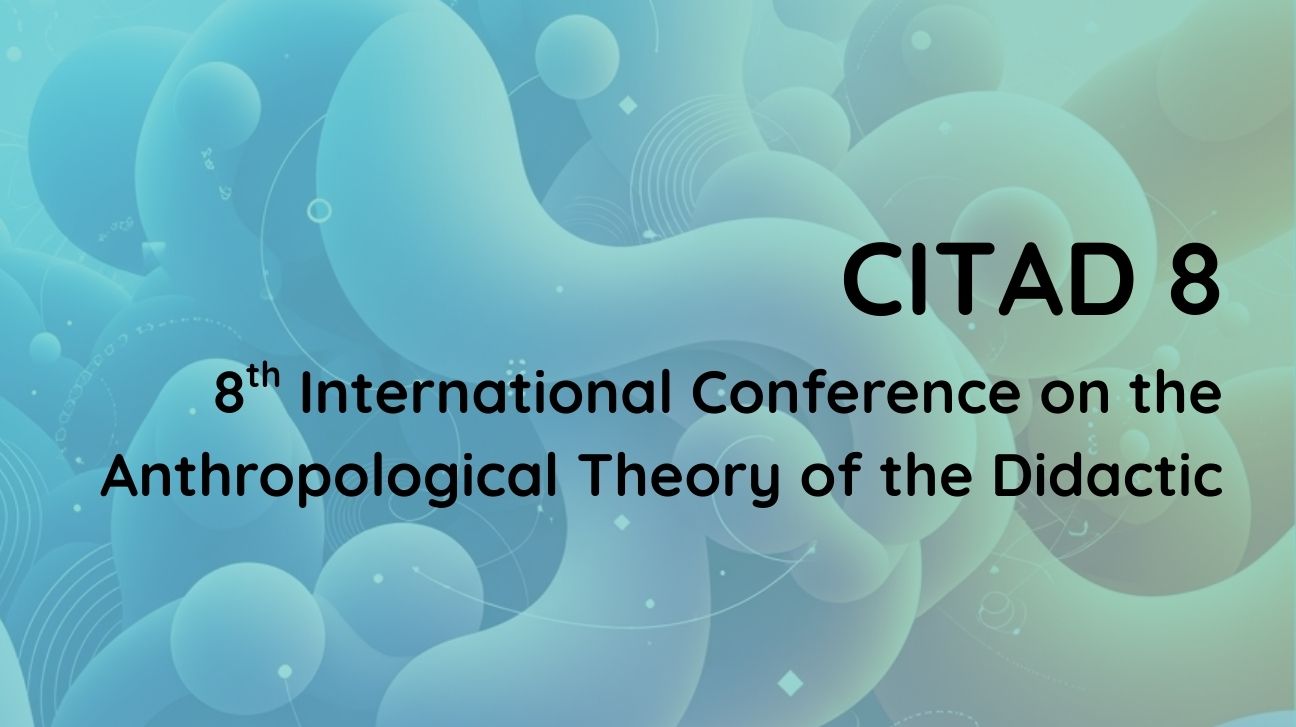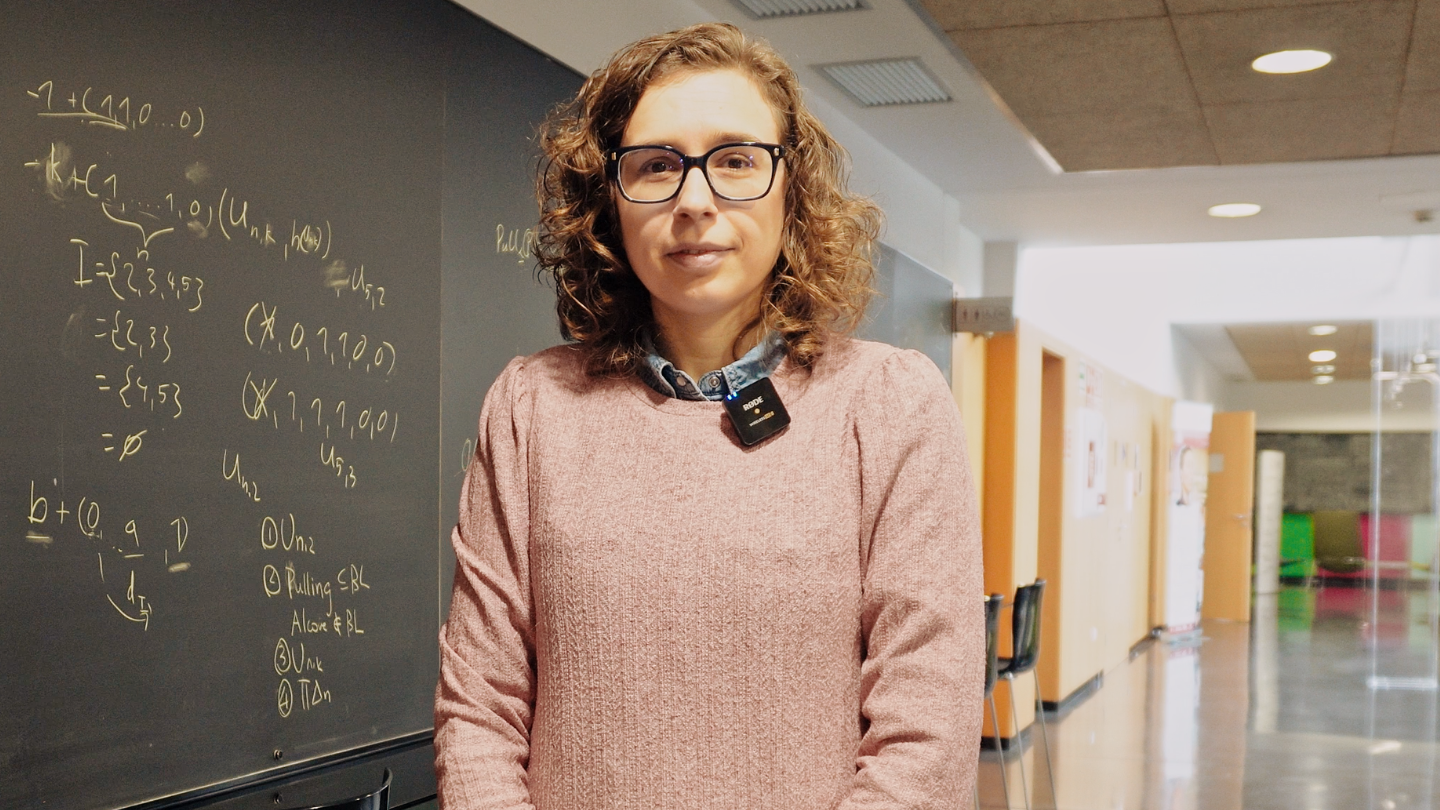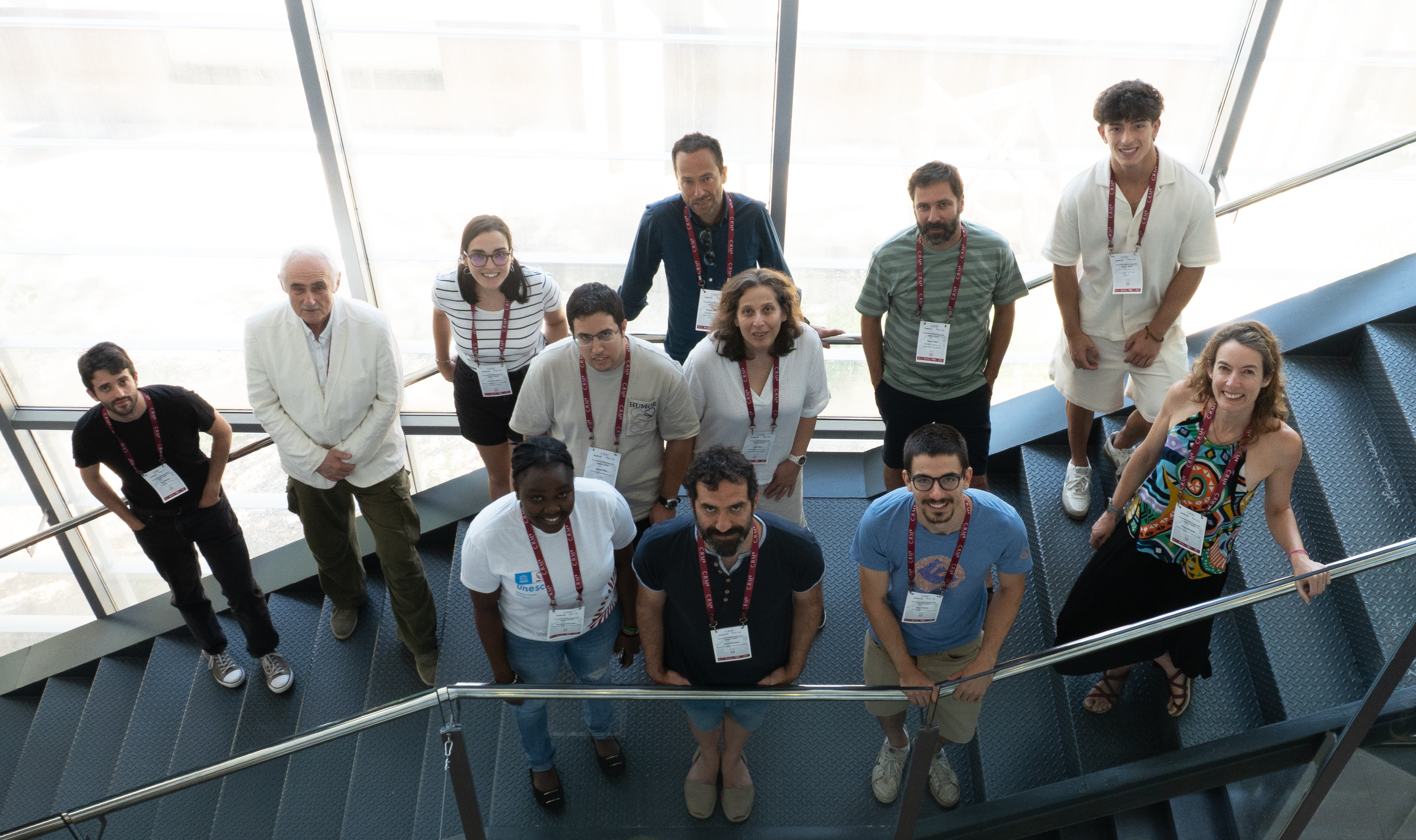
Over the course of five days, ESGI 2025 turned the CRM into a collaborative lab where mathematics tackled questions raised by industry. From safer autonomous driving systems to smart water resource allocation and the financial uncertainties of wind power, participants worked hands-on with real data, constraints, and expectations.
From July 14 to 18, the Centre de Recerca Matemàtica (CRM) hosted the 2025 edition of the European Study Group with Industry (ESGI), a long-standing initiative that connects academic researchers with industry professionals to solve complex real-world problems through applied mathematics. The event, co-organised with Math-In and PT-MATHS-IN, brought together participants from across Europe in a dynamic, collaborative workshop format.
Structured around three industrial challenges proposed by Sener Mobility, Cetaqua, and EDP, the workshop offered a unique opportunity to apply advanced mathematical tools to real, unsolved problems in mobility, resource optimisation, and energy.
Real problems. Real constraints. Real-time solutions.
Sener’s challenge focused on developing a next-generation Advanced Driver Assistance System (ADAS) to support safer overtaking manoeuvres, a functionality still absent in most commercial systems. Teams worked with the open-source CARLA simulator to design and test a prototype ADAS, modelling sensor behaviour and constructing diverse virtual driving scenarios involving weather, traffic, and road degradation. The mathematical demands were high: from probabilistic modelling under uncertainty to optimisation under strict performance constraints like reaction time and accuracy.

Cetaqua, the water research and technology centre, asked participants to optimise the combined use of multiple water sources (groundwater, surface water, desalinated, reclaimed, and network water), each with different costs, flows, and qualities. The goal: to meet specific demands while ensuring output quality and respecting environmental and regulatory constraints. The problem required balancing realism and simplicity in a non-linear system where treatment efficiency depends on source quality.
EDP’s challenge addressed the little-understood area of volumetric risk in renewable energy production. Unlike price risk (which can be hedged through Power Purchase Agreements), energy volume is inherently weather-dependent, making revenue streams unpredictable. Participants explored how to model and mitigate this exposure, especially for wind energy, where traditional financial tools fall short in simultaneously managing both price and volume volatility.

Participants came from a wide range of institutions and countries, including Portugal, Spain, Finland, France, Georgia, Norway, and Italy. Teams were composed of early-career and senior researchers, working side-by-side with industry representatives and academic supervisors throughout the week.
The event was guided by a scientific committee made up of Emilio Carrizosa (Universidad de Sevilla – Math-In), Ricardo Enguiça (Instituto Superior de Engenharia de Lisboa – PT-MATHS-IN), Ana Moura (Polytechnic of Porto – PT-MATHS-IN), and David Romero (CRM). The CRM’s Knowledge Transfer Unit (KTU) coordinated the event on the ground.
ESGI proved that mathematics is more than a theoretical pursuit; it’s a powerful tool for navigating real-world complexity, bridging academia and industry.
Subscribe for more CRM News
|
|
CRM CommPau Varela
|
Trivial matemàtiques 11F-2026
Rescuing Data from the Pandemic: A Method to Correct Healthcare Shocks
When COVID-19 lockdowns disrupted healthcare in 2020, insurance companies discarded their data; claims had dropped 15%, and patterns made no sense. A new paper in Insurance: Mathematics and Economics shows how to rescue that information by...
El CRM Faculty Colloquium inaugural reuneix tres ponents de l’ICM 2026
Xavier Cabré, Joaquim Ortega-Cerdà i Xavier Tolsa, tots tres convidats a parlar al Congrés Internacional de Matemàtics del 2026, protagonitzaran la primera edició del nou col·loqui trimestral del Centre el 19 de febrer.El Centre de Recerca...
L’exposició “Figures Visibles” s’inaugura a la FME-UPC
L'exposició "Figures Visibles", produïda pel CRM, s'ha inaugurat avui al vestíbul de la Facultat de Matemàtiques i Estadística (FME) de la UPC coincidint amb el Dia Internacional de la Nena i la Dona en la Ciència. La mostra recull la trajectòria...
Xavier Tolsa rep el Premi Ciutat de Barcelona per un resultat clau en matemàtica fonamental
L’investigador Xavier Tolsa (ICREA–UAB–CRM) ha estat guardonat amb el Premi Ciutat de Barcelona 2025 en la categoria de Ciències Fonamentals i Matemàtiques, un reconeixement que atorga l’Ajuntament de Barcelona i que enguany arriba a la seva 76a edició. L’acte de...
Axel Masó Returns to CRM as a Postdoctoral Researcher
Axel Masó returns to CRM as a postdoctoral researcher after a two-year stint at the Knowledge Transfer Unit. He joins the Mathematical Biology research group and KTU to work on the Neuromunt project, an interdisciplinary initiative that studies...
The 4th Barcelona Weekend on Operator Algebras: Open Problems, New Results, and Community
The 4th Barcelona Weekend on Operator Algebras, held at the CRM on January 30–31, 2026, brought together experts to discuss recent advances and open problems in the field.The event strengthened the exchange of ideas within the community and reinforced the CRM’s role...
From Phase Separation to Chromosome Architecture: Ander Movilla Joins CRM as Beatriu de Pinós Fellow
Ander Movilla has joined CRM as a Beatriu de Pinós postdoctoral fellow. Working with Tomás Alarcón, Movilla will develop mathematical models that capture not just the static architecture of DNA but its dynamic behaviour; how chromosome contacts shift as chemical marks...
Criteris de priorització de les sol·licituds dels ajuts Joan Oró per a la contractació de personal investigador predoctoral en formació (FI) 2026
A continuació podeu consultar la publicació dels criteris de priorització de les sol·licituds dels ajuts Joan Oró per a la contractació de personal investigador predoctoral en formació (FI 2026), dirigits a les universitats públiques i privades del...
Mathematics and Machine Learning: Barcelona Workshop Brings Disciplines Together
Over 100 researchers gathered at the Centre de Recerca Matemàtica to explore the mathematical foundations needed to understand modern artificial intelligence. The three-day workshop brought together mathematicians working on PDEs, probability, dynamical systems, and...
Barcelona + didactics + CRM = CITAD 8
From 19 to 23 January 2026, the CRM hosted the 8th International Conference on the Anthropological Theory of the Didactic (CITAD 8), a leading international event in the field of didactics research that brought together researchers from different countries in...
Seeing Through Walls: María Ángeles García Ferrero at CRM
From October to November 2025, María Ángeles García Ferrero held the CRM Chair of Excellence, collaborating with Joaquim Ortega-Cerdà on concentration inequalities and teaching a BGSMath course on the topic. Her main research focuses on the Calderón problem,...

